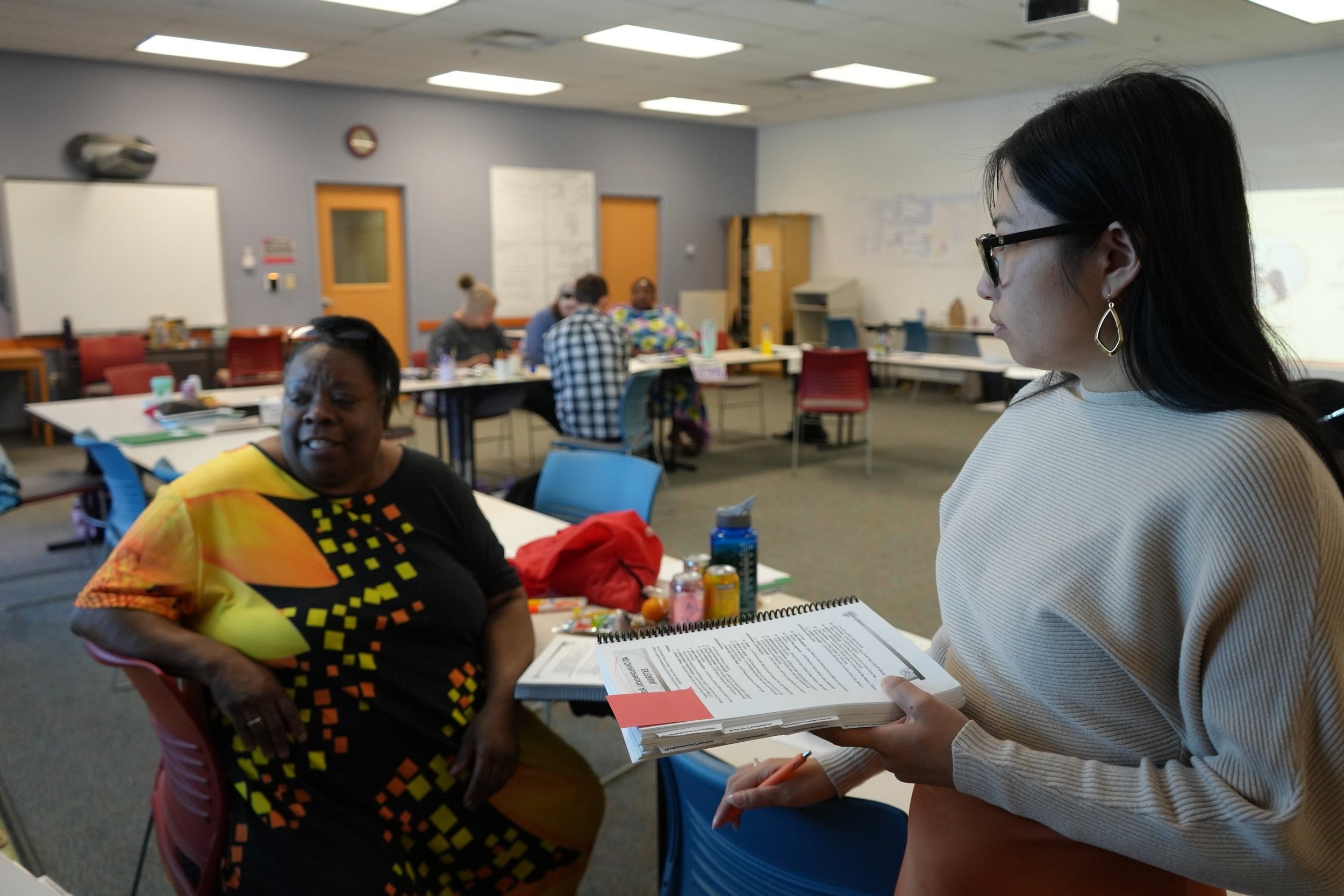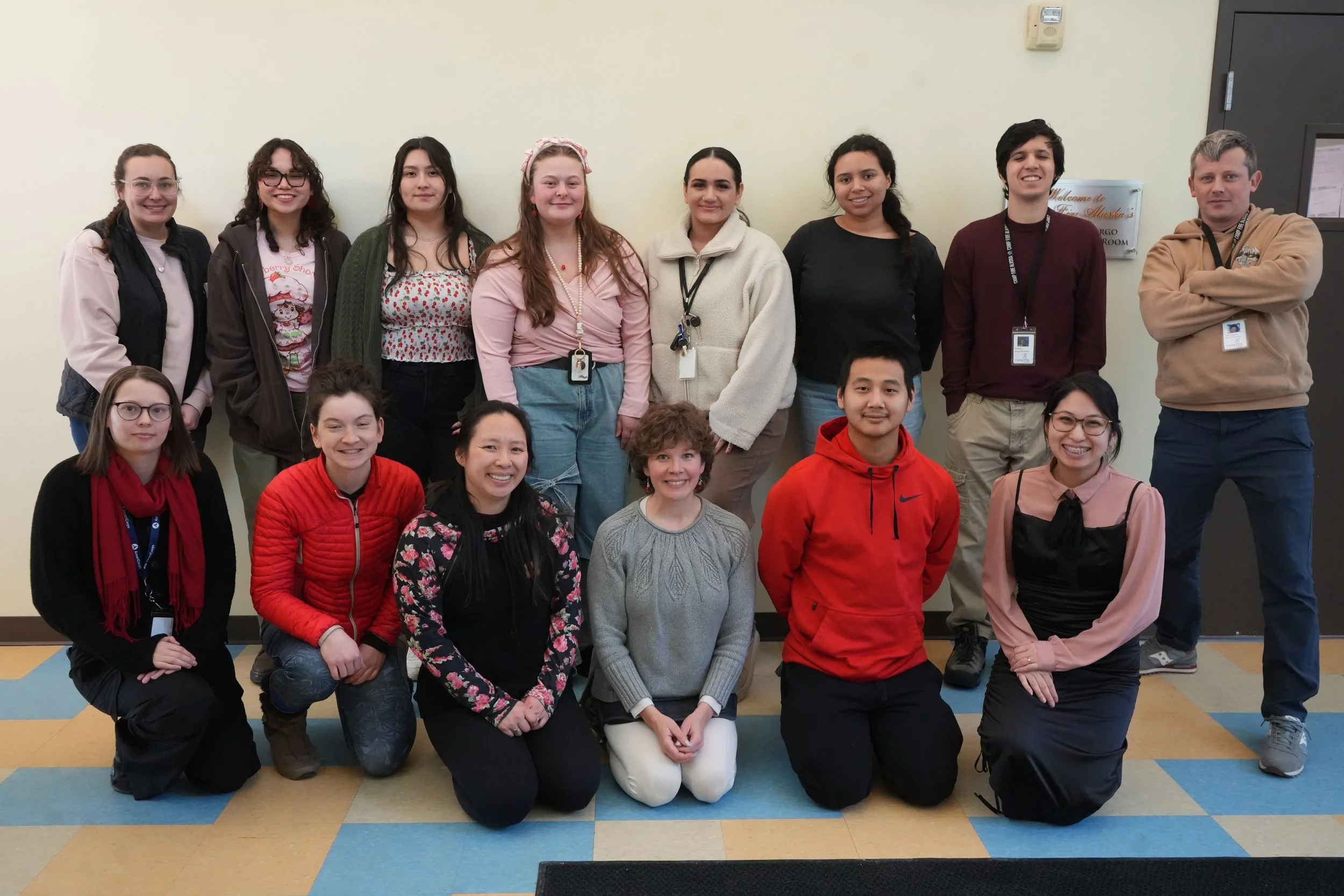
STRENGTHEN | CYC CREDENTAL
Child & Youth Care Credential
The Child & Youth Care Credential provides an assessment process to child and youth care practitioners who demonstrate their commitment to high standards of care and commitment to ongoing development.
CYC Course & Credential
The Child and Youth Care Credential helps support your success as an out-of-school time professional by expanding your career pathway to include the ability to apply for administrative roles at licensed child care facilities. Engaging in the certification process inter-connects those in the child and youth care field, promotes higher standards of practice, and opens opportunities for meaningful contribution in creating a world where competent, compassionate, and caring professionals are available to Alaska’s children, youth, and families.
Enrolling and taking the Alaska Afterschool Network’s Child and Youth Care course helps support your success in obtaining the CYC credential. It provides training hours you can use toward your application and emphasizes key elements that will help you with your work in Child and Youth Care in the afterschool setting.
The CYC Credential Includes
5 Key Competencies:
1 - Professionalism
2- Cultural & Human Diversity
3- Applied Human Development
4- Relationship & Communication
5- Developmental Practice Methods
Who Should Apply?
Youth Care Professional working directly with children and/or young people in an out-of-school time setting should consider applying for this credential.
Where Can I Learn More?
Interested in getting certified in Child and Youth Care? Contact Xaviera Lee here to find out more information and how to get started. To get the latest information about new training opportunities, subscribe to our weekly newsletter here.
How Will It Benefit My Career?
The State of Alaska’s Child Care Program Office has now approved the CYC credential as a qualifying education requirement for individuals interested in becoming administrators at licensed child care facilities.
Upcoming Certification Course:
The Alaska Afterschool Network is partnering with the Academy for Competent Youth Work to provide the Child and Youth Care (CYC) credential training for FREE to licensed school-age childcare providers. The course will follow a 4-day-per-week schedule over three consecutive weeks. The schedule and details are as follows:
Week 1: September 23-26 (Tue-Fri) 9:00am-12:30pm
Week 2: September 30 - October 3 (Tue-Fri) 9:00am - 12:30pm
Week 3: October 7-10 (Tue-Fri) 9:00am - 12:30pm
Training Location: Camp Fire Alaska, 161 Klevin St, #100, Anchorage, AK 99508
Certification Exam: October 14, 2025, 10:00am - 1:30pm OR October 15, 2025, 10:00am - 1:30pm
Participants will need to register for a three-hour testing block during one of the scheduled testing days.
Registration close: Friday, September 12, 2025 or when capacity is filled.
Course is limited to 20 participants.
*SEED Travel Reimbursement:
Up to $1,000 in travel reimbursement for the CYC: Foundations Course is available for licensed school-age providers and staff to apply for through Alaska SEED! Here's what you'll need:
A Pre-Travel Application for the training must be submitted online at least 21 days prior to traveling.
Apply for SEED Travel Reimbursement HERE.
Questions? Contact Xaviera Lee at xlee@alaskachildrenstrust.org or 907-202-9353
Overview of Credential Steps
STEP 1: Determine which certification level best describes your experience, training/education, and level of competence
Entry Level
Are engaged in basic training in childcare and youth work,
Are focused on learning fundamental practice skills,
Work under the supervision of others with more advanced credentials,
Have a minimum of one (1) year (2000 hours) experience working with children, youth, and families,
Are employed in a variety of settings including early care and education, after school, education, mental health, group living, shelters, disabilities programs, juvenile justice, recreation, transitional living, and community youth serving organizations.
Associate Level
Obtaining this credential level will support your advancement into administrative roles at licensed child care facilities.
Demonstrate the ability to apply core knowledge, concepts, ideas, and skills in at least one practice setting,
Demonstrate some knowledge and skills in each of the 5 core competency domains,
Require moderate supervision by practitioners with higher certification/education levels who provide consultation, direction, and guidance,
Demonstrate the ability to collect information, evaluate its relevance, and make appropriate use of the information to guide practice and grow as professionals,
Demonstrate insight in reflecting on personal knowledge, skills, and abilities to create plans for on-going self-development,
Utilize guidance and feedback from practitioners with higher certification levels to enhance personal competence.
Professional Level
Obtaining this credential level will support your advancement into administrative roles at licensed child care facilities.
Demonstrate the full range of knowledge and skills needed for competent practice. Practitioners often have work experience in multiple practice settings in a variety of direct care, supervisory, programmatic, and administrative capacities,
Graduate from baccalaureate, master's, or doctoral degree programs based on the five competency domains. Graduates who take a test upon completion of the degree program may qualify for Provisional Certification,
Provide supervision to relatively large groups of staff or serve as a program developer, administrator, senior supervisor, researcher, trainer or educator,
Have a minimum of five (5) years' experience working with children, youth & families (less with higher educational attainment),
Are employed in a variety of settings including early care and education, after school, mental health, education, group living, emergency shelters, disabilities programs, juvenile justice, recreation, transitional living and community youth serving organizations.
STEP 2: Complete testing with a passing score
The CYC exams are composed of 75-89 questions that relate to scenarios. The scenarios describe practice in various settings including early childhood education, after school, foster, residential and group care, and juvenile justice.
STEP 3: Complete an application form for the level chosen
Includes: multi-page application form, colleague references, supervisor assessment, and supporting documentation.
The Alaska Afterschool Network team provides assistance for completing your application.
STEP 4 (for Professional Level Credential only): Complete your writing portfolio
The CYCCB portfolio includes eight reflective exercises for candidates to demonstrate how specific competencies are applied in their professional practice.
Interested in getting certified in Child and Youth Care? Contact Xaviera Lee here to find out more information and how to get started.

Recipients of the CYC Credential
Emma Korosei
Hollis Long
Zara Alvarado
Emma Montagna
Melissa Morton
KatDee Yang
Associate Level Credential
Steven Stroman-Wahl
Yolanda Ector
Caitlin Adair
Zahria Garner
Brenda Taatiti
Xaviera Lee
Kaitlyn Christopher
Meagean DeBenedetto
Entry Level Credential
Danny Aragones Matias
Maryell Fereti
Tamika Lake
Professional Level Credential
Nichole Boyden
Anna McGovern
Erin Moriearty
McKinley Sibbett
Carol Shumway
Nena Moore
Alex Nichols
Angel Storle
Lily Tegner
April Luck
Lauren Hudson
Lukas Garcia
Jamal Robinson
Shirquan Ross
Jenny Stucky



